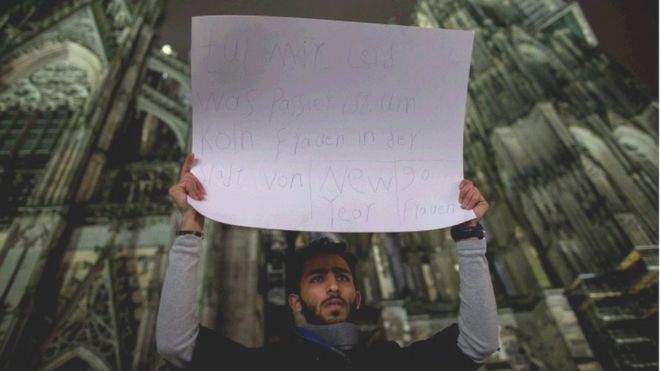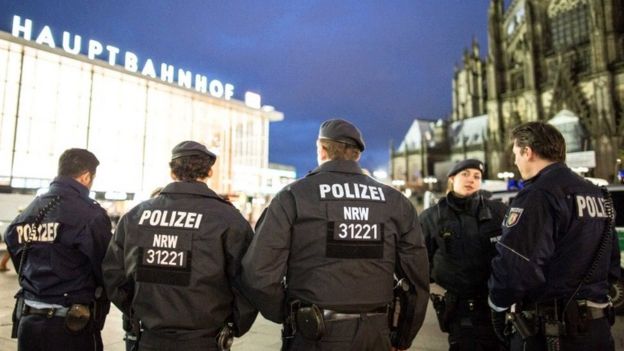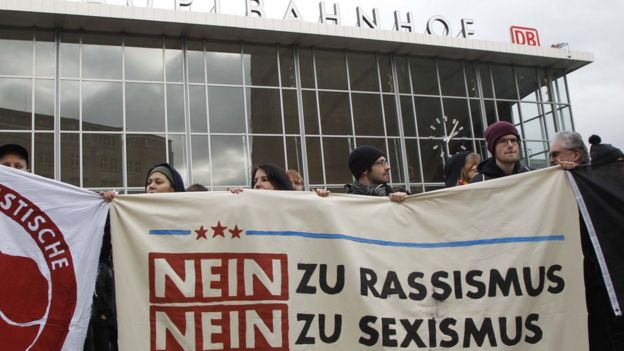- 1 hour ago
- Europe
 EPA
EPA
People on Arabic-language social media have voiced dismay and anger at the sexual violence against women in Cologne and other German cities on New Year's Eve.
Indications that many of the attackers were North African or Arab in appearance prompt soul-searching, with some alluding to the perception that sexual violence against women is widespread in North Africa and the Middle East.
Many express concern about the possible impact the incidents could have on Germany's perception of migrants and refugees from the regions.
 EPA
EPA
On Twitter, the Arabic-language hashtags #Germany and #Cologne have been used more than 17,000 and 2,500 times.
Twitter user @Osama_Saber voices the fear that the incidents will bring "shame of historic proportions" on all Arabs living in Germany.
'Scumbags'
"I have never felt more respected than I feel here," Facebook user Israa Ragab - an Egyptian living in Germany - writes.
"Every time I watch the TV and hear them saying the suspects could be from North Africa or Arabs I feel so ashamed and disgusted."
Twitter user @LLLLoL00 is blunter: "Every time we try to improve the image of Arabs, a bunch of scumbags just destroys everything!"
Commenting on the arrest of an Iraqi and a Palestinian in relation to sexual harassment allegations on New Year's Even in Berlin, Deutsche Welle Arabic journalist Nahla Elhenawy voices the opinion that such incidents are symptomatic of wider problems relating the treatment of women in the Middle East and some Muslim-majority countries.
"The ugliness of our region is reaching Germany," she tweets.
 AP
AP
Many social media users fret that the sexual harassment incidents could lead to a backlash in Germany and elsewhere against liberal policies towards refugees from Syria, such as those espoused by German Chancellor Angela Merkel.
"Will Europe regret receiving people who suffer from religious and political repression?" @Farcry99 tweets.
Another user suggests this could be the beginning of Germany "closing its doors for refugees".
BBC Monitoring reports and analyses news from TV, radio, web and print media around the world. You can follow BBC Monitoring on Twitter and Facebook.

No comments:
Post a Comment